Managing your hospitality staffing needs is a crucial part of effective management, but how do you actually go about hiring the best employees? In this article, you can gain some useful advice on how to optimize your recruitment process. Along the way, you will also find a breakdown of the main skills and qualities to look for in new recruits.
Table of Contents:
- What is the Hospitality Industry?
- Overview of The Most Common Hospitality Positions
- Essential Hiring Tips to Optimize Your Hospitality Staffing Strategy
- Be Clear on What You Are Looking For
- Build and Maintain a Positive Company Culture
- Make Sure You Offer Good Working Conditions
- Offer Career Progression Opportunities
- Stand Out From Rival Hospitality Businesses
- Use Interviews for Discovery Purposes
- Assess the Candidates and Make Comparisons
- Make Sure You Have a Great Onboarding Strategy
- Continually Analyze Your Recruitment Results
- Focus on Your Own Reputation as an Employer
- Interviews and Assessment Techniques for Hiring Hospitality Staff
- What to Look for When Hiring Hospitality Staff? 5 of the Best Employee Qualities
- How to Find a Hospitality Management Job
- Channels for Finding a Hotel Management Job
- Major Hospitality Trends for the Years Ahead
What is the Hospitality Industry?
The hospitality industry is part of the wider service industry focused on enjoyable experiences – with the word hospitality meaning the reception and entertainment of visitors or guests. Hospitality businesses are primarily concerned with leisure and ideas like customer satisfaction. The industry spans fields like accommodation, restaurants and other food and drinks services, travel agencies, tour operators, and entertainment venues.
Given the industry’s focus, hospitality staffing efforts are typically focused on finding people with good customer service skills, in addition to the specialist skills required to perform their particular role.
In the “Hospitality Industry: The Number 1 Hospitality Information Guide,” you can read a complete definition of hospitality and a breakdown of the main sub-sectors and business types.
Overview of The Most Common Hospitality Positions
One of the potential hospitality staffing challenges businesses can face is the number of different positions that need to be filled. There are a wide range of career options within hospitality and those involved with hospitality management may need to recruit staff for front office, customer service, maintenance, cleaning and management roles.
In the “Hospitality Careers: Overview of All Hospitality Positions” article, you will read a rundown of the most significant hospitality career paths and learn the core responsibilities of each position.
Essential Hiring Tips to Optimize Your Hospitality Staffing Strategy
In the following sections, you can read useful recruitment tips, which will help you optimize your hospitality staffing strategy and find the best employees for your business.
1. Be Clear on What You Are Looking For
The first step to optimizing your hospitality staffing strategy is to be clear on what you actually need. Are you looking for one new recruit for a specific role, or an entire team of workers for a new department? How many people do you actually need? Do you have enough cover to contend with expected and unexpected absences?
Once you have a clear picture of the hospitality jobs you are hiring for, you also need to be clear on what you will be looking for when assessing applications and carrying out interviews. What are the most essential skills to look for? What level of experience will candidates need to have? Are you seeking specific qualifications?
2. Build and Maintain a Positive Company Culture
Building and maintaining a positive company culture can have an impact on hospitality staffing in a number of key areas. For instance, it can improve your business’s reputation as an employer, which makes it easier to attract quality talent. It can also reduce staff turnover, reducing the need to make quick hires to replace departing workers.
So, what does a positive company culture look like? All employees should be treated with respect. Anyone in a hospitality manager role should practice what they preach and live up to the standards they set for others. Employee wellbeing should be a priority, and employees should feel supported in the workplace.
3. Make Sure You Offer Good Working Conditions
Another great hospitality staffing tip that can assist you in attracting the best workers is to take a holistic approach to optimizing your working conditions. Hire enough people to avoid any individuals becoming completely overworked. Make sure your workplace is following all of the relevant regulations in terms of safety.
Try to avoid any situations where your employees are expected to perform tasks that are unsafe or beyond their capabilities. Provide a clean and hygienic environment. Employee pay is also a major consideration, so make sure you are advertising jobs with a salary or wage that is reasonable for the job and competitive with what others are paying.
4. Offer Career Progression Opportunities
Optimizing your strategy for hospitality staffing also relies upon offering staff the opportunity to advance their career. In many cases, the best candidate for a vacancy will be someone who already works for you, understands day-to-day operations, and has demonstrated the right attitude and work ethic.
Providing opportunities for career advancement is also helpful for hiring external talent. Candidates may ask about opportunities for professional growth, and they may want examples of it. If you can point to a clear culture of rewarding top performers with promotions or other opportunities, you have more chance of attracting ambitious workers.
Hospitality Industry Jobs | Hospitality Careers | Hotel School
5. Stand Out From Rival Hospitality Businesses
When it comes to hiring the best employees, you need to make sure your business stands out from other companies in the hospitality sector. You can do this in several ways, including some of the aforementioned suggestions, like providing great working conditions and career opportunities, but you can go much further, too.
You could choose to really invest in your employees and allow them to earn recognized qualifications while they work. You might be able to offer unique training opportunities or a unique approach to the role itself. Perhaps you can offer a unique work pattern that provides days off on favorable days. Promote whatever makes you different.
6. Use Interviews for Discovery Purposes
The interview is one of the most crucial parts of the hospitality staffing process. Still, it is important to use this time wisely and discover as much as possible about each candidate. Try to focus on open-ended questions and ask for examples of times people have had to use specific skills, or times when people have overcome adversity.
Managers and recruiters have different approaches to the interview, but you should try to use an approach you are comfortable with. The interview does not necessarily have to be highly formal or follow a traditional format. Some hospitality companies have successfully used interviews to have candidates demonstrate their skills in person.
7. Assess the Candidates and Make Comparisons
Once you have your list of potential new recruits, you need to take some time to assess them and make comparisons. What are each of their strengths? What are their weaknesses? Who seems the best-suited for the job? Who has the most potential? Do you have any concerns about any of their backgrounds, work histories, or personalities?
Speak to candidates’ references and take some time to Google candidates’ names. Glance over any public social media channels and ensure no significant red flags. At times, hospitality staffing may also come down to your gut instinct. Think carefully about whether candidates will be a good fit with your existing teams.
8. Make Sure You Have a Great Onboarding Strategy
Choosing the right candidates to hire is really only the beginning of the hospitality staffing battle. To ensure you have the perfect team in place, you need to have a strategy for onboarding your new recruits. This means getting them up to full competency as quickly as possible, without cutting corners.
Departmental leaders will play an essential role here, but you also need to ensure they have the tools and training materials they need. Poor onboarding is one of the leading causes of employee dissatisfaction.
9. Continually Analyze Your Recruitment Results
Following the tips provided can help you to boost your hospitality staffing approach. Still, you also need to continually review and analyze your recruitment efforts and make any necessary changes along the way.
Monitoring your staff turnover rates and employee satisfaction levels is especially important. If you fail to retain staff, you will need to dig deeper with your analysis and try to identify possible causes. Are you recruiting people who are a poor fit for your company culture? Are rivals offering more money? You might need to improve your onboarding process, or offer top performers more opportunities to earn promotions.
10. Focus on Your Own Reputation as an Employer
Hospitality is generally seen as an employee market, which means those working in the field typically have multiple work options. In the aftermath of the COVID-19 pandemic, with the rise of remote working in other industries, it is now harder to attract and retain talent than ever, so you need to focus on your reputation.
Hospitality workers widely use platforms like Glassdoor to review the companies they work for. Jobseekers also use these platforms to assess companies before applying. Make sure you do everything you can to treat employees well, live up to your obligations, and avoid accusations of discrimination or unlawful behavior.
Interviews and Assessment Techniques for Hiring Hospitality Staff
Interviews and assessments are core hospitality staffing activities, but recruiters must adopt the right approach. What works in one hospitality business is not necessarily going to be the best option in yours.
Regarding interviews, many options are available beyond the standard approach of formal questions and answers. Some companies insist on carrying out roleplaying interviews. Here, you ask the candidates to act out a particular scenario, which helps you understand how they might deal with real situations.
Regardless of the exact approach, you should also use your interview to find out about each candidate’s work experience and personality. Do they appear to be friendly? Do they seem like a good fit for your company culture? Ask them about situations that crop up in your workplace and explore how they would deal with them.
Beyond the interview, you might also want to conduct aptitude testing. This could take the form of a skills test, or a communication test. Some hospitality companies also carry out personality tests. This will allow you to determine the personality types of your candidates so you can more easily find the best fit.
What to Look for When Hiring Hospitality Staff? 5 of the Best Employee Qualities
In addition to understanding how to attract workers to your business, you also need to know precisely what to look for in candidates who apply. The following sections break down five of the most essential qualities.
1. Excellent Communication Skills
Communication should be at the heart of your hospitality staffing efforts. You need to make sure your new hires possess good verbal communication skills. Customer-facing restaurant or hotel staff, for example, need to be able to speak clearly, listen to customers, demonstrate positive body language, and remain calm at all times.
Depending on the nature of your business, you may also need to look for excellent written communication skills. Furthermore, it can be advantageous for many businesses in the hospitality industry to have employees who can speak multiple languages or communicate using other methods, such as sign language.
Skills You Develop Working in Hospitality
2. Collaboration and Leadership Skills
Next, you need to make sure your approach to hospitality staffing sufficiently considers collaboration and the need for teamwork. When assessing candidates, you should consider relevant experience in this area. During interviews, asking for examples of effective teamwork can be a good idea.
Moreover, at least some of your hires need to demonstrate real initiative and possess leadership skills. This is especially important if you are recruiting for a managerial position, or looking for a team leader.
3. Multitasking and Versatility Skills
Whether you are looking to fill hotel jobs, need waiting staff for a restaurant or cafe, or require travel agents, multitasking is a fundamental part of hospitality staffing success. After all, employees may need to deal with multiple customer requests simultaneously, while also balancing the needs of their manager.
Try to look for candidates who are comfortable multitasking and who can demonstrate previous experience working in high-pressure environments. It is also beneficial to seek out versatile workers, who have had success in multiple areas and pick up new ideas quickly, because most hospitality positions have a broad range of responsibilities.
4. Flexibility and Dependability
Hospitality, more than almost any other industry, relies upon a degree of workforce flexibility. Hospitality staffing requirements often include flexible work patterns,, and the most successful employees in the restaurant and hotel industry are typically willing to roll with the punches.
Try to identify applicants who have demonstrated flexibility in the past, or who seem to want to embrace the flexible nature of hospitality work. It is also important to focus on dependable candidates. You want to know that in a crisis, if you request someone to work a shift outside their usual routine, they will step up.
5. Customer Service-Oriented Workers
Finally, the hospitality sector is almost entirely based on customer experiences and the pleasant reception of guests. With this in mind, anyone you hire for your hospitality business must understand customer service and have a drive to meet or exceed customer expectations.
Problem-solving skills, attention to detail, and personability are all major things to look out for during interviews. Hospitality staffing success is likely to depend on employees who go the extra mile to satisfy customers or guests, so make sure you recruit individuals with the right attitude, who can think on their feet.
How to Find a Hospitality Management Job
A hospitality staffing strategy will typically be led by those working in managerial positions, so how can you land one of these roles? In addition to having the right skills and qualifications, you need to know where to look. This may include approaching companies directly, using job boards, and capitalizing on different social media channels.
In the “Hospitality Management Jobs: List of Hotel Chains to Find a Job” article, you can access a list of major hotel brands to approach, job boards to use, and other valuable information that can assist you.
Channels for Finding a Hotel Management Job
Within the broad field of hospitality management jobs, some of the most in-demand roles are hotel management jobs. As a hotel manager or departmental manager, you will oversee major activities, manage hospitality staffing needs, implement strategies, and more. So, how do you actually find the right hotel management position?
In the “Hotel Management Jobs: List of Channels to Find Your Dream Job” article, you will find an overview of the most useful job platforms to search for hotel management vacancies and other valuable information.
Major Hospitality Trends for the Years Ahead
Aside from overseeing a hospitality staffing strategy, a key component of managerial roles and other senior positions involves keeping up with the latest trends. Examples include the growing focus on sustainability, the rise of AI, the emergence of virtual reality, and the renewed focus on hygiene and cleanliness.
In the “Hospitality Trends: The Latest Trends in The Hospitality Industry” post, you can read more about the latest culture and technology trends hospitality managers need to know about.
Hospitality Staffing FAQs
Optimizing your approach to hospitality staffing can transform your business because hospitality relies on living up to customer expectations. Using the tips provided, you can ensure you are adopting the right recruitment approach while also looking for the right skills, qualities, and character traits.
More Tips to Grow Your Business
Revfine.com is the leading knowledge platform for the hospitality and travel industry. Professionals use our insights, strategies, and actionable tips to get inspired, optimize revenue, innovate processes, and improve customer experience.Explore expert advice on management, marketing, revenue management, operations, software, and technology in our dedicated Hotel, Hospitality, and Travel & Tourism categories.
This article is written by:
Hi, I am Martijn Barten, founder of Revfine.com. With 20 years of experience in the hospitality industry, I specialize in optimizing revenue by combining revenue management with marketing strategies. I have successfully developed, implemented, and managed revenue management and marketing strategies for individual properties and multi-property portfolios.

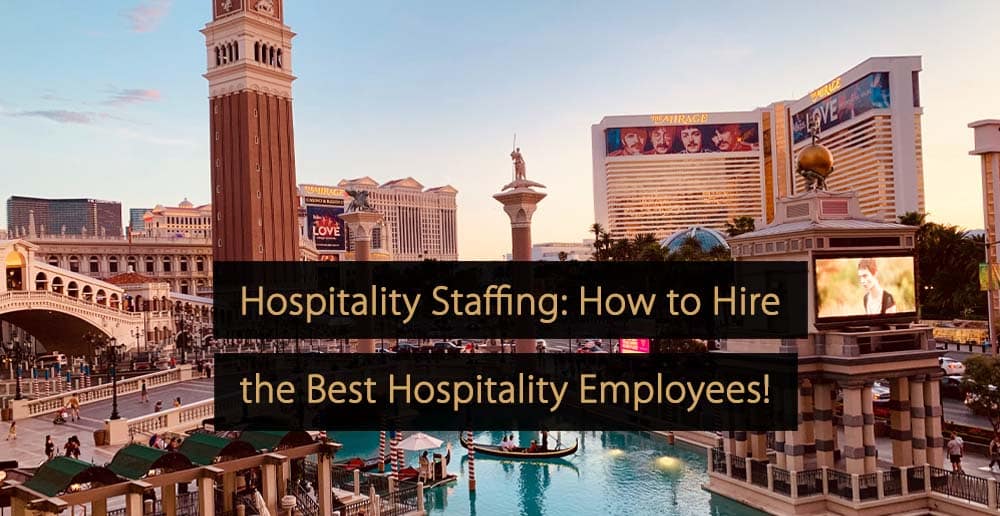
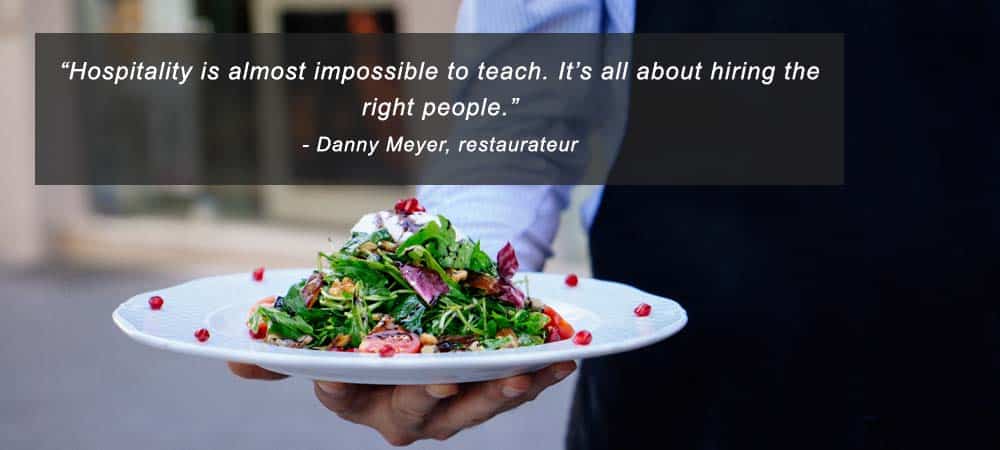



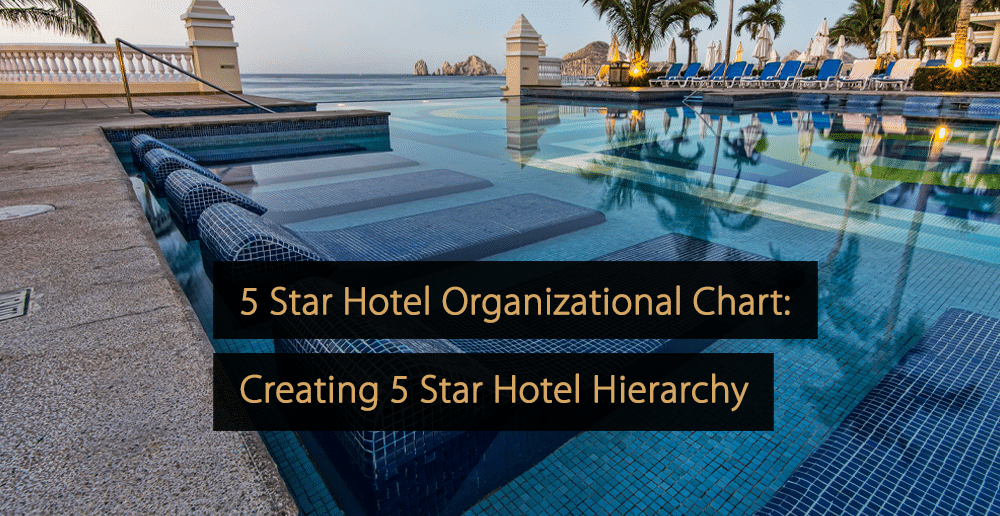
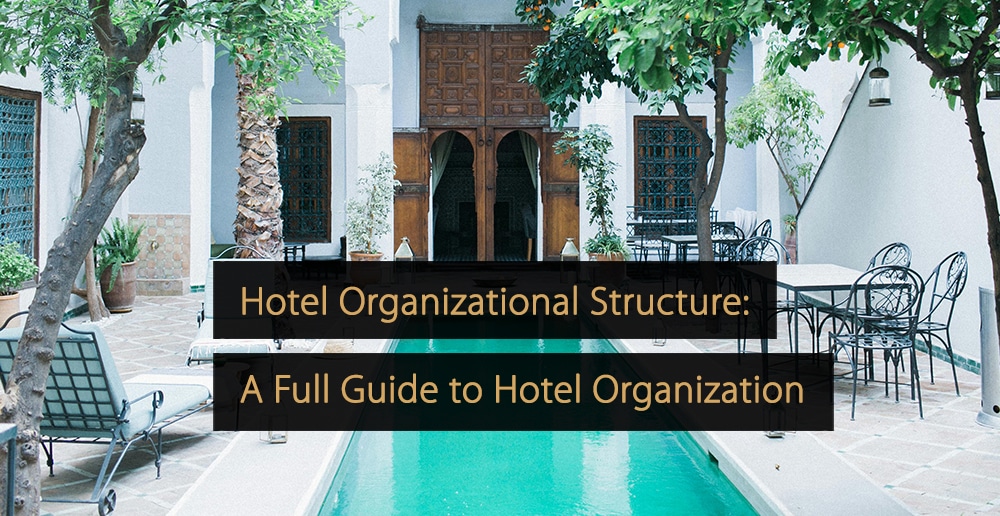
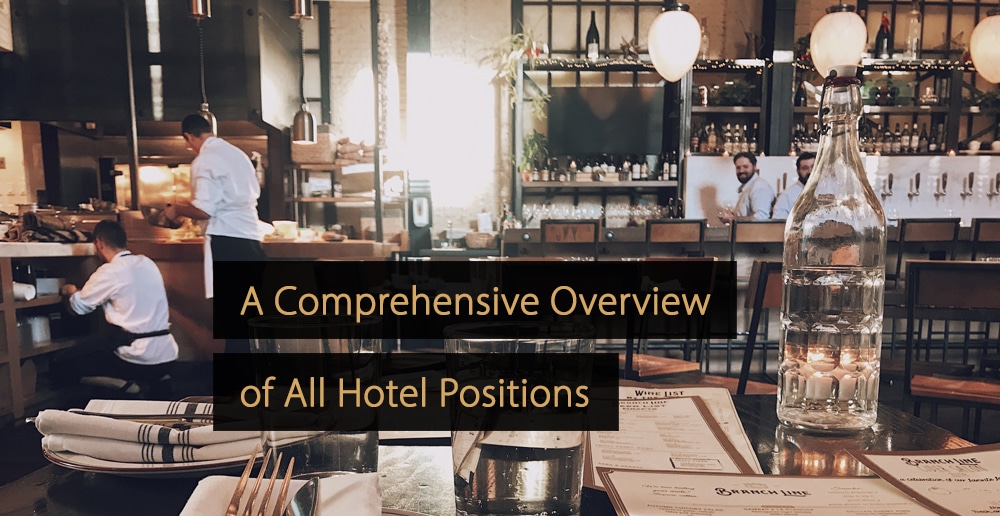
Leave A Comment